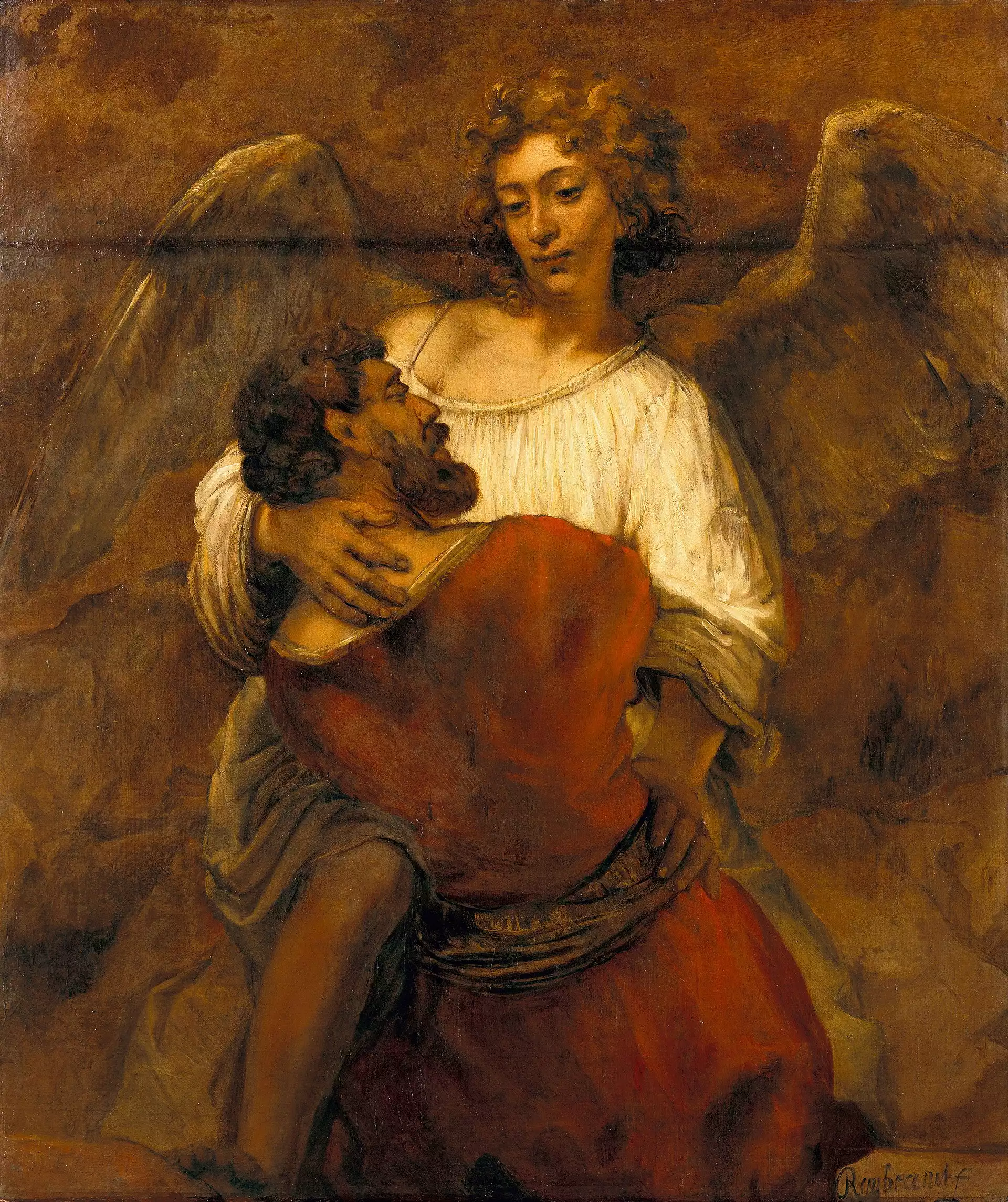
Jacob, also known as Israel, holds a pivotal position in the annals of religious history, renowned as the progenitor of the twelve tribes of Israel. His life, woven into the fabric of Judaic tradition, is a compelling narrative of faith, resilience, and divine interaction. Born in the 2nd millennium BCE, Jacob’s journey from a cunning youth to a venerable patriarch embodies profound themes of transformation and redemption.
The Early Life of Jacob
Jacob’s story begins with his birth as the younger twin to Esau, sons of Isaac and Rebekah. From his very inception, Jacob was destined for a unique path, as foretold by divine prophecy to Rebekah. His early years were marked by a keen sense of ambition and a complex relationship with his brother Esau. This sibling dynamic took a pivotal turn when Jacob, with his mother’s guidance, obtained Esau’s birthright in exchange for a simple meal. This act, while contentious, was a defining moment in Jacob’s life, setting the stage for his future endeavors and challenges.
The intricacies of Jacob’s personality are further revealed in his quest for a wife. Escaping his brother’s wrath, he journeyed to his uncle Laban’s house, where he fell in love with Rachel. Jacob’s commitment and perseverance were tested as he labored for fourteen years to marry the woman of his choice, first being tricked into marrying Leah, Rachel’s elder sister. This period of his life highlights the themes of love, deception, and patience, weaving a rich tapestry of human experience.
The narrative of Jacob is not merely a chronicle of personal endeavors but also reflects a deeper spiritual journey. His famous dream at Bethel, where he envisioned angels ascending and descending a ladder to heaven, is emblematic of his growing relationship with the divine. This vision, promising protection and a bountiful lineage, solidified Jacob’s role as a chosen patriarch and a key figure in the unfolding story of the Israelites.
The Transformation of Jacob
The latter years of Jacob’s life were marked by profound change and reconciliation. His return to Canaan was not just a geographical journey but a spiritual odyssey. This period saw Jacob’s transformation from a scheming youth to a mature leader, reflecting a deeper inner change. A pivotal moment in this transformation was his encounter with an angel at Peniel, where he wrestled until dawn and earned the name Israel, signifying his struggle with God and men and his prevailing.
This transformation was further exemplified in his reconciliation with Esau. The meeting, fraught with uncertainty, ended in a peaceful resolution, demonstrating Jacob’s growth in humility and forgiveness. His role as a father also came to the forefront, particularly in the story of Joseph, his favored son. The trials and tribulations faced by Joseph, culminating in his rise to power in Egypt, brought Jacob’s family into the limelight of biblical history.
Jacob’s final years were spent in Egypt, surrounded by his sons, where he bestowed blessings that would shape the future of the twelve tribes. His death and burial in the Cave of Machpelah closed the chapter of his earthly journey but marked the beginning of his lasting legacy in religious tradition.
Jacob’s life story, rich in complexity and spiritual significance, continues to inspire and teach. His journey from a cunning individual to a wise patriarch underscores themes of faith, perseverance, and transformation. Jacob’s legacy lives on through the twelve tribes, each carrying a unique part of his character and spiritual inheritance.
References
- Alter, Robert. “The Five Books of Moses.” W. W. Norton & Company, 2004.
- Brettler, Marc Zvi. “The Creation of History in Ancient Israel.” Routledge, 1995. Accessed 15 January 2024.
- Friedman, Richard Elliott. “Who Wrote the Bible?” HarperOne, 1997.
- Hamilton, Victor P. “The Book of Genesis: Chapters 1-17.” Eerdmans Publishing Co., 1990.
- Hendel, Ronald. “Of Demigods and the Deluge: Toward an Interpretation of Genesis 6:1-4.” Journal of Biblical Literature, Vol. 106, No. 1, 1987. Accessed 15 January 2024.
- Levenson, Jon D. “Resurrection and the Restoration of Israel: The Ultimate Victory of the God of Life.” Yale University Press, 2006. Accessed 15 January 2024.
- Sarna, Nahum M. “Understanding Genesis.” Schocken Books, 1966.
- Tubb, Jonathan N. “Canaanites.” The British Museum Press, 1998. Accessed 15 January 2024.
